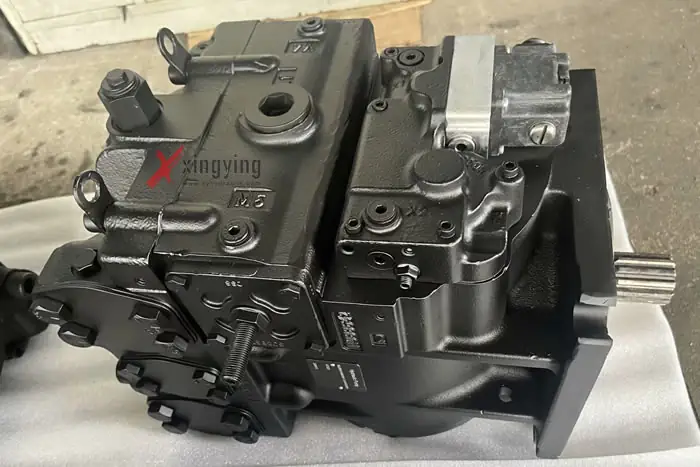8 common faults of plunger pumps and their repair methods

Plunger pump common faults and their repair methods
Plunger pump is an important power element in the Hydraulic System, and its working principle is to use the plunger reciprocating motion in the cyLinder barrel to transport or pressurize the liquid. Plunger pumps have the advantages of compact structure, high efficiency, small pressure pulsation, etc., and are widely used in engineering machinery, automobiles, ships and other fields.
Plunger pumps in the long-term use of the process will appear a variety of faults, affecting its normal work. Common failures and maintenance methods are as follows:
1. No flow or insufficient flow after the pump starts, large pressure pulsation, and strong pipeline shaking
Reason:
The air in the pump chamber is not discharged
Poor sealing of the plunger inlet and outlet valves
Suction filter cLogged
Pressure Relief valve or relief valve failure
The suction pipe is too thin and too long, and the liquid level in the water tank is low
Maintenance method:
Venting
Replace or repair ram inlet drain valve
Clean the suction filter
Check and eliminate pressure relief valve or relief valve failure
Replace or enlarge the suction hose to raise the tank level
2. flow without pressure or insufficient pressure
Cause:
Poor sealing of manual pressure relief valve, fatigue of regulator spring
Spray nozzle hole wear
Repair method:
Repair or replace manual pressure relief valve
Replace the nozzle
3. noisy operation, loud impact sound
Cause:
The crankshaft crankshaft and axial tile are badly worn, the clearance is too large, the connecting rod screws are loose
Pump debris, gear damage
Insufficient suction
Repair method:
Replace the shaft tile or crankshaft, tighten the connecting rod screws
Clean the pump body, replace the gear
Check the suction pipeline and remove the blockage
4. Increased oil temperature, abnormal heat
Cause:
Insufficient or too much oil, dirty oil, oil number does not match, improper viscosity
Transmission parts of the gap is too large, accessory parts of the friction is too large, long running time
Maintenance method:
Add or replace the oil according to regulations
Check and adjust the clearance of transmission parts, replace the worn parts.
5. Sudden increase in pump pressure
Cause:
Safety valve or relief valve failure, system failure
Repair method:
Check and repair safety valve or relief valve
Troubleshooting the system
6. Oil leakage from lubrication area
Cause:
Cylinder wall pulling hair, piston ring damage
Repair method:
Repair or replace the cylinder, piston ring
7. High case temperature
Cause:
Insufficient or too much lubricating oil, dirty lubricating oil, damaged axial tile or crankshaft hair pulling
Repair method:
Add or replace lubricating oil
Clean the lubrication system, replace the axle shaft or crankshaft.
8. Severe leakage at plunger seal
Cause:
Worn or damaged seals, severe pulling and scratching of the plunger surface.
Repair Method:
Replace seal.
Replace or repair the plunger.
Notes:
Before servicing the plunger pump, read the instruction manual carefully to understand the structure and working principle of the pump.
When disassembling and installing the plunger pump, it should be carried out in strict accordance with the operating procedures to avoid damaging the parts.
The parts used for repair should be original parts or parts that meet the quality requirements.
After the repair is completed, test run should be carried out to check whether the performance of the pump meets the requirements.
In addition, in order to prevent the plunger pump failure, should also pay attention to the following matters:
Regularly check and maintain the Piston Pump and replace worn or damaged parts in time.
Use hydraulic oil that meets the quality requirements and replace the hydraulic oil regularly.
Keep the hydraulic system clean and prevent impurities from entering the pump.
Avoid overloading the pump.
Why Choose XingYing Hydraulic as Your Supplier?
1.Direct from Manufacturer: Benefit from competitive pricing on top-quality hydraulic products, sourced directly from our factory in China.
2.Custom Solutions: Our expertise allows us to tailor hydraulic components to your precise requirements, ensuring optimal performance.
3.Reliable Supply: Count on us as your trusted supplier for consistent quality and timely delivery, backed by our reputation in the industry.